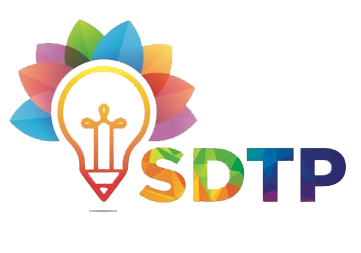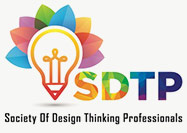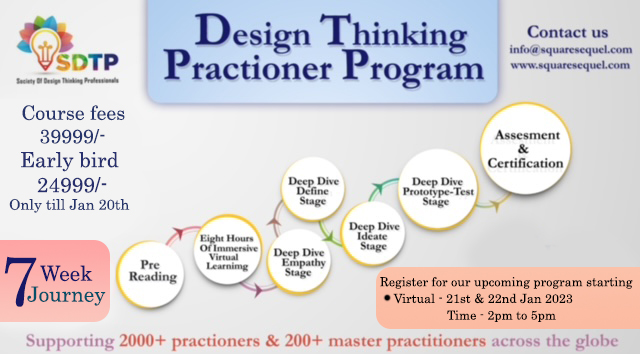Have you ever admired the wit of those individuals who seem to effortlessly connect with their colleagues? They glide through the workplace with a natural grace, cultivating meaningful connections as if it were an art form, leaving you to ponder the secret behind their success.
As you sit in meetings, have you ever felt a surge of ideas bubbling within, yet hesitated to give them a voice? Perhaps you’ve yearned to initiate conversations or take the reins of a new project but found yourself at the mercy of self-doubt and uncertainty.
It happens, right? Most of us ponder upon the thought of why it happens.
As observed by William James a century ago, holds the same truth today, “Most people live in a restricted circle of potential.” Our full potential does not lie in opportunity, intelligence, or resources, it lies in an unwavering belief in ourselves. In simple words, it’s the power of self-confidence. “With it, the possibilities are boundless; without it, our potential remains largely untapped.”
Research indicates that men, who are often more self-assured, initiate compensation negotiations four times more frequently than women. When women do bargain, they make 30% fewer demands than men.
Researchers are beginning to recognize that happiness and well-being are significantly influenced by confidence. To reach the flow—that ethereal state when we’re “in the zone”—we must exude confidence. We can reach the level of maximum productivity if we have confidence in our abilities.
Now the question is, what is confidence? Let’s take a leap and reap some answers in detail.
What is Confidence?

Confidence is often misunderstood as an innate quality, something that only a fortunate few are born with. However, we need to bust this myth. Confidence is not a fixed attribute, but rather the outcome of our thoughts and actions. It’s a reflection of our belief in our capabilities, irrespective of whether we possess innate talents in a specific area.
For example:
- Your belief in your ability to speak confidently in front of an audience;
- Your belief in mastering new technology;
- Your belief in your capacity to lead a team;
- Your belief in handling confrontation and conflict;
- It also extends to your belief in making significant life changes, such as switching careers, leaving a relationship, or launching a business.
Research in neural plasticity has revealed that we can actively rewire our brains at any age, altering our thoughts and behaviors. We can enhance our self-confidence. By consciously making that choice and consistently putting in the effort to expand our comfort zones, we gradually build confidence and increase our growth potential.
In a world where the beliefs we hold significantly shape our lives, this realization offers an empowering perspective. It means that, regardless of past timidity or self-doubt, we can enhance our self-confidence through volitional efforts. With commitment and the willingness to take calculated risks, we can expand our confidence, paving the way for personal and professional development.
How to Exude Confidence to Make Better Connections at Work?

In the workplace, making connections with colleagues, superiors, and subordinates is an art. It’s an art that involves not just the mastery of communication skills but also the ability to radiate confidence. Confidence is the invisible yet powerful force that can make or break your success in the professional world. It’s the key to building more meaningful and enduring connections at work.
In this comprehensive exploration, let’s delve into the essence of confidence and how it can be harnessed to make better connections at work. Here are the elements that contribute to confidence;
Self-assurance
is the cornerstone upon which confidence is built. It is the deep, unwavering belief in your abilities, knowledge, and worth. When you possess self-assurance, you project an aura of competence and certainty that draws others to you. This belief in your capacity to navigate challenges, make decisions, and achieve your goals forms the bedrock of your confidence. To exude confidence, you must cultivate self-assurance from within.
How to do it?
- Practice self-acceptance: Embrace your strengths and weaknesses.
- Make and accomplish minor goals: Confidence comes with success.
- Positive self-talk: Replace self-doubt with affirmations.
- Seek feedback: Constructive criticism fuels growth.
- Explore beyond your comfort zone: Take on hurdles head-on.
- Visualize success: Mentally prepare for confidence-boosting situations.
- Embrace failure: Learn from setbacks, and bounce back stronger.
- Focus on a growth mindset: Have faith in your capabilities.
- Self-care: Prioritize physical and mental well-being.
- Celebrate achievements: Acknowledge your accomplishments.
Power dressing
Investing in wardrobe essentials, adding new accessories, and using proportions and colors that flatter are all necessary for dressing like a strong player.
According to a study conducted by two professors at Columbia Business School, participants who dressed in formal attire were found to be more inclined toward abstract, big-picture thinking, akin to the thought processes of a CEO. On the other hand, those who dressed less formally tended to fixate on minor details.
Michael L. Slepian, one of the co-authors of the study and an adjunct assistant professor at Columbia Business School, explained, “Individuals wearing such clothing tend to experience a heightened sense of empowerment. When this feeling of power is present, the need to excessively focus on intricate details diminishes.”
How to do it?
- Choose well-fitting attire that accentuates your body shape.
- Opt for classic, timeless pieces with a modern twist.
- Add striking and contrasting hues to your outfit.
- Invest in quality, comfortable footwear.
- Accessorize thoughtfully, but avoid overdoing it.
- Grooming is key; maintain a neat and polished appearance.
- Pay attention to details like belts, ties, or scarves.
- Tailor your clothing for a perfect fit.
- Dress according to the occasion and industry standards.
- Maintain good posture and confident body language.
You are much more than your job description
One common misconception is that our job descriptions define us in the workplace. However, you are much more than your title or the tasks assigned to you. Embrace your unique skills, experiences, and perspectives. Don’t shy away from showcasing your talents and contributions beyond your official role. This self-recognition and assertiveness enhance your self-assurance and, consequently, your ability to connect with those around you. Remember, the most powerful connections often arise from acknowledging and leveraging your individuality.
How to do it?
- Showcase your unique strengths and skills beyond the job requirements.
- Be proactive in taking on additional responsibilities and projects.
- Seek opportunities for professional development and growth.
- Foster strong relationships with colleagues and demonstrate teamwork.
- Be adaptable and willing to learn new skills and technologies.
- Volunteer for leadership roles or special assignments.
- Promote innovative solutions and contribute to problem-solving.
- Actively engage in networking and industry events.
- Share your knowledge and mentor others in your area of expertise.
- Embrace a growth mindset, continually striving to improve and excel.
Make the first move
Building connections at work necessitates proactive engagement. Be the first one to make the move. Instead, be the one to make the first move. Whether it’s initiating a conversation, suggesting a collaborative project, or organizing a team-building event, taking the initiative demonstrates your commitment to building relationships. It shows that you are confident in your ability to foster connections and are willing to put in the effort to do so. Making the first move can be a transformative step in your journey to exuding confidence.
How to do it?
- Embrace micro acts of courage, they are seemingly small but incrementally influential.
- Identify opportunities for action.
- Prepare and plan.
- Visualize success in your mind.
- Act with conviction and clarity.
- Embrace learning from rejection.
Confidence manifests: It shows up
Confidence isn’t confined to your thoughts; it is palpable in your actions and interactions. It’s evident in your body language, your tone of voice, and your overall demeanor. When you possess confidence, you naturally maintain eye contact, stand tall, and speak clearly. Your words carry conviction, and your actions resonate with assurance. Others can perceive your self-assuredness, which in turn makes them more inclined to trust and connect with you.
The American Psychological Association states that a strong sense of self-worth is essential for mental health and well-being.
How to do it?
- Maintain strong, yet comfortable, eye contact.
- Stand tall with good posture.
- Speak clearly and at a moderate pace.
- Offer a firm handshake when appropriate.
- When under pressure, keep your cool and maintain your composure.
- Smile genuinely and engage in active listening.
Continue your Journey of Enhancing Confidence
Once we believe in ourselves, we can risk curiosity, wonder, spontaneous delight, or any experience that reveals the human spirit.
– E.E. Cummings
Confidence is not a fixed attribute; it’s a skill that can be developed and strengthened over time. To enhance your confidence, understand your strengths and areas for improvement. Invest in continuous learning to expand knowledge and boost self-assurance. Practice assertiveness by expressing thoughts clearly and respectfully. This consistent effort in self-improvement empowers individuals to cultivate and strengthen their confidence over time.
Confidence is a dynamic force that can elevate your ability to make meaningful connections at work. It’s the bridge that connects your self-assurance with your interactions, enabling you to build stronger professional relationships. From self-assurance and power dressing to making the first move and enhancing your confidence through continuous learning, every facet contributes to your overall ability to exude confidence.
“You may not control all the events that happen to you, but you can decide not to be reduced by them.”
— Maya Angelou
Confidence allows us to navigate the unpredictable currents of our professional lives, emerging stronger and more connected, undeterred by the challenges we encounter.
https://officevibe.com/blog/why-confidence-is-the-secret-to-success
https://www.jstor.org/stable/24551582
https://hbr.org/2022/12/choose-courage-over-confidence
https://www.verywellmind.com/why-it-s-important-to-have-high-self-esteem-5094127
https://zenhabits.net/25-killer-actions-to-boost-your-self-confidence/
https://balancedworklife.com/wp-content/uploads/2017/12/work_place_confidence.jpg
Written By: Jimmy Jain
Edited By: Afreen Fatima
Society of Design Thinking Professionals









